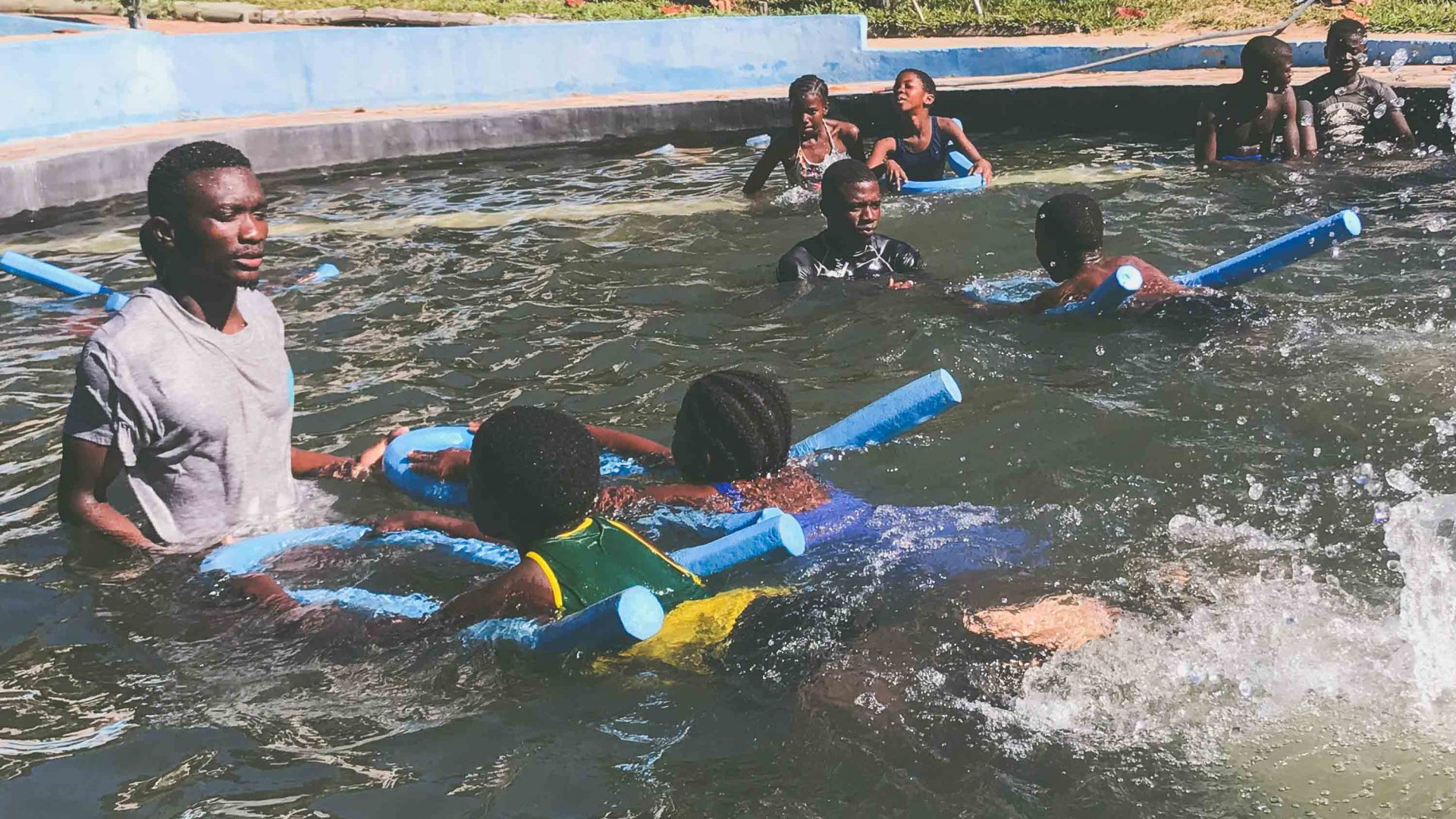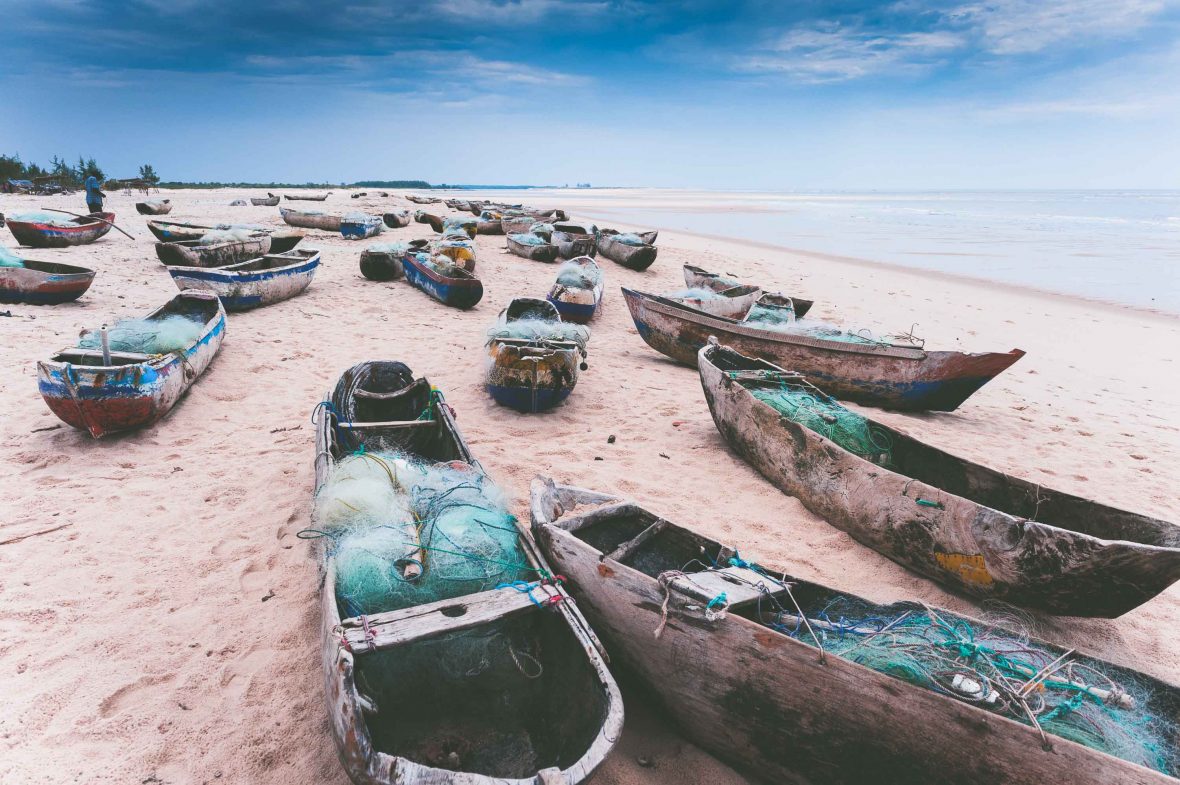Mozambique's Marine Wonders: A Deep Dive Into Conservation Efforts
Mozambique, officially the Republic of Mozambique, is a country of breathtaking beauty located in Southeast Africa, boasting an extensive coastline along the Indian Ocean. This vibrant nation, rich in natural resources and biologically diverse, is a true gem, renowned for its tropical climate and stunning marine ecosystems. From its bustling capital, Maputo, to the remote archipelagos, Mozambique's aquatic realm is a treasure trove of biodiversity, making the topic of Mozambique marine conservation not just important, but absolutely critical for the nation's future and the health of our planet.
With a population estimated at 33.2 million people in 2024, Mozambique's reliance on its coastal and marine resources is profound. The official language is Portuguese, alongside numerous Bantu languages, reflecting its rich cultural tapestry. However, beneath the surface of this vibrant culture and stunning geography lies a delicate balance, one that is increasingly threatened by human activity and climate change. Understanding the intricate web of life that thrives in Mozambique's waters and the dedicated efforts to protect it is essential for anyone interested in environmental stewardship and sustainable development.
Table of Contents
- Mozambique's Coastal Splendor: A Geographic Overview
- The Ocean's Bounty: Mozambique's Marine Biodiversity Hotspot
- Threats to Mozambique's Marine Ecosystems
- Pioneering Conservation Initiatives in Mozambique
- The Role of Science and Research in Marine Protection
- Economic Benefits of Healthy Oceans for Mozambique
- Challenges and Future Directions for Marine Conservation
- Global Collaboration for Local Impact
Mozambique's Coastal Splendor: A Geographic Overview
Mozambique, officially the Republic of Mozambique, is strategically positioned in Southeast Africa, with its eastern flank entirely bordered by the Indian Ocean. This extensive coastline, stretching over 2,500 kilometers, is a defining feature of the country, shaping its climate, culture, and economy. To its north, Mozambique shares a border with Tanzania, while Malawi and Zambia lie to its northwest. Zimbabwe is to the west, and South Africa and Eswatini complete its southern borders. This unique geographical placement, particularly its direct access to the Indian Ocean, bestows upon Mozambique an incredible array of marine environments, from coral reefs and mangrove forests to vast open ocean stretches. The country's tropical climate further enhances the conditions for diverse marine life, fostering ecosystems that are among the richest globally. This natural endowment, however, also places a significant responsibility on the nation and the international community to ensure its preservation. Understanding Mozambique's geography is the first step in appreciating the scale and importance of Mozambique marine conservation efforts. It's not just about protecting isolated pockets of nature; it's about safeguarding an entire interconnected system that supports millions of lives and contributes significantly to global biodiversity.The Ocean's Bounty: Mozambique's Marine Biodiversity Hotspot
Mozambique's marine environment is nothing short of extraordinary. It is a recognized global hotspot for marine biodiversity, teeming with an astonishing variety of species and habitats. The warm waters of the Indian Ocean, coupled with diverse underwater topographies, create ideal conditions for flourishing coral reefs, extensive seagrass beds, and vital mangrove forests. These habitats serve as nurseries, feeding grounds, and shelters for an incredible array of marine organisms, from microscopic plankton to some of the ocean's largest inhabitants. The coral reefs off Mozambique's coast are vibrant underwater cities, home to thousands of fish species, colorful invertebrates, and various types of sharks and rays. These reefs are not only aesthetically stunning but also crucial for coastal protection and as a source of food and livelihoods for local communities. Beyond the reefs, the deeper waters and migratory routes host iconic species such as humpback whales, whale sharks, and various dolphin species, making Mozambique a prime destination for marine ecotourism. Critically, the country is also home to significant populations of dugongs, a vulnerable marine mammal, particularly in areas like the Bazaruto Archipelago, which is a designated national park. The health of these populations is a key indicator of the overall success of Mozambique marine conservation initiatives. The sheer richness of this marine life underscores the urgency and importance of robust conservation strategies to ensure these natural wonders endure for future generations.Threats to Mozambique's Marine Ecosystems
Despite its incredible natural wealth, Mozambique's marine ecosystems face a formidable array of threats, many of which are escalating in intensity. These challenges stem from a combination of local human pressures and global environmental changes, placing immense strain on the delicate balance of its underwater world. Addressing these threats is central to any effective Mozambique marine conservation strategy, requiring a multi-faceted approach that considers both immediate interventions and long-term sustainable solutions. The impacts are far-reaching, affecting not only the environment but also the socio-economic well-being of coastal communities who depend directly on these resources.Illegal Fishing and Poaching
One of the most pervasive and damaging threats to Mozambique's marine life is illegal, unreported, and unregulated (IUU) fishing, coupled with the rampant poaching of protected species. Foreign and domestic vessels often operate outside legal frameworks, employing destructive fishing methods such as dynamite fishing and bottom trawling in sensitive areas. This not only depletes fish stocks at an unsustainable rate but also causes irreparable damage to critical habitats like coral reefs and seagrass beds. The poaching of marine turtles for their meat and shells, as well as the illegal trade in shark fins and other endangered species, further exacerbates the problem. These activities undermine the efforts of local communities and authorities striving for sustainable resource management and represent a significant drain on the country's natural capital. The lack of adequate surveillance and enforcement capacity across Mozambique's vast coastline makes it particularly vulnerable to these illicit operations, highlighting a critical area for enhanced Mozambique marine conservation efforts.Climate Change Impacts
Climate change poses an existential threat to Mozambique's marine ecosystems, manifesting in several devastating ways. Rising ocean temperatures contribute to coral bleaching events, where corals expel their symbiotic algae, leading to their eventual death if temperatures remain elevated. This loss of coral reefs has cascading effects, impacting the myriad species that rely on them for food and shelter. Ocean acidification, a direct consequence of increased carbon dioxide absorption by the oceans, further weakens coral skeletons and the shells of other marine organisms, making them more vulnerable. Beyond these direct impacts, Mozambique is highly susceptible to extreme weather events, including more frequent and intense cyclones. These storms cause physical damage to coastal infrastructure and marine habitats, disrupting ecosystems and displacing communities. Sea-level rise also threatens low-lying coastal areas, leading to erosion, saltwater intrusion into freshwater sources, and the loss of critical mangrove forests that act as natural buffers against storms and provide essential nursery habitats. The long-term implications of climate change necessitate urgent global action and localized adaptation strategies as part of a comprehensive Mozambique marine conservation agenda.Pioneering Conservation Initiatives in Mozambique
Recognizing the immense value and vulnerability of its marine resources, Mozambique has embarked on various pioneering conservation initiatives. These efforts, often a blend of governmental action, international partnerships, and grassroots community involvement, aim to mitigate threats and foster sustainable management practices. The commitment to Mozambique marine conservation is evident in the establishment of protected areas and the empowerment of local communities, laying the groundwork for a more resilient marine future.Establishing Marine Protected Areas
A cornerstone of Mozambique's marine conservation strategy has been the establishment and expansion of Marine Protected Areas (MPAs). These designated zones restrict human activities to varying degrees, allowing marine ecosystems to recover and thrive. The Bazaruto Archipelago National Park, for instance, is one of Africa's premier marine protected areas, globally recognized for its pristine coral reefs, seagrass beds, and significant dugong population. Other vital MPAs include the Quirimbas National Park in the north and the Ponta do Ouro Partial Marine Reserve in the south, which is crucial for the protection of marine turtles and sharks. These MPAs serve multiple purposes: they safeguard critical habitats, protect endangered species, and provide refugia for fish stocks, which can then spill over into adjacent fishing grounds, benefiting local fishers. They also form the backbone of Mozambique's burgeoning ecotourism industry, attracting divers, snorkelers, and wildlife enthusiasts, thereby generating revenue that can be reinvested into conservation efforts. Effective management of these MPAs, including surveillance, monitoring, and community engagement, is paramount to their success in advancing Mozambique marine conservation goals.Community-Based Conservation
True long-term success in Mozambique marine conservation hinges on the active participation and empowerment of local communities. Many coastal populations in Mozambique rely directly on marine resources for their livelihoods, making their involvement in conservation not just desirable but essential. Community-based conservation initiatives recognize that local people are often the most effective stewards of their environment, given their traditional knowledge and direct stake in healthy ecosystems. These initiatives often involve co-management agreements for fishing areas, where communities work alongside government agencies and NGOs to set fishing quotas, enforce regulations, and monitor fish stocks. Programs focused on alternative livelihoods, such as sustainable aquaculture, ecotourism, or craft production, reduce pressure on overexploited marine resources. Education and awareness campaigns are also vital, helping communities understand the importance of conservation and the long-term benefits of sustainable practices. By fostering a sense of ownership and responsibility, community-based approaches create a powerful force for positive change in Mozambique's marine environment.The Role of Science and Research in Marine Protection
Effective Mozambique marine conservation is built upon a foundation of robust scientific research and data collection. Understanding the intricate dynamics of marine ecosystems, the status of fish stocks, and the impacts of various threats requires continuous monitoring and scientific inquiry. Researchers, often in collaboration with international partners, conduct studies on marine biodiversity, track migratory patterns of key species, assess the health of coral reefs, and monitor the effects of climate change. This scientific data is crucial for informing policy decisions, designing effective management plans for MPAs, and developing targeted conservation interventions. For example, population assessments of dugongs or specific fish species help determine sustainable fishing quotas or identify areas requiring stricter protection. Research into resilient coral species or innovative restoration techniques can guide efforts to mitigate the impacts of climate change. Furthermore, citizen science initiatives, where local communities contribute to data collection, bridge the gap between scientific expertise and local knowledge, enhancing the relevance and effectiveness of conservation efforts. The commitment to evidence-based conservation ensures that resources are allocated efficiently and that strategies are adapted to changing environmental conditions, strengthening the overall impact of Mozambique marine conservation.Economic Benefits of Healthy Oceans for Mozambique
The health of Mozambique's marine ecosystems is intrinsically linked to the economic well-being of the nation. Beyond their ecological value, healthy oceans provide a wealth of economic benefits, supporting livelihoods, generating revenue, and contributing to food security. Investing in Mozambique marine conservation is therefore not just an environmental imperative but a sound economic strategy. One of the most significant economic contributions comes from the fisheries sector. Millions of Mozambicans depend on fishing for food and income, with artisanal fisheries playing a particularly vital role in coastal communities. Sustainable management of fish stocks ensures a continuous supply of protein and supports local economies. However, overfishing and illegal practices threaten this critical resource, underscoring the need for effective conservation measures. Furthermore, Mozambique's stunning marine environment is a major draw for tourism. The country's pristine beaches, vibrant coral reefs, and opportunities for diving, snorkeling, and whale watching attract international visitors, creating jobs in hospitality, transport, and related services. Ecotourism, in particular, offers a sustainable pathway for economic development, providing incentives for local communities to protect their natural assets. Healthy marine ecosystems also offer coastal protection from storms and erosion, reducing the economic costs associated with natural disasters. Recognizing these tangible economic benefits reinforces the argument for prioritizing Mozambique marine conservation as a cornerstone of the nation's sustainable development.Challenges and Future Directions for Marine Conservation
While significant strides have been made in Mozambique marine conservation, considerable challenges remain. The sheer scale of Mozambique's coastline, coupled with limited financial and human resources, makes effective enforcement and monitoring a daunting task. Corruption can undermine conservation efforts, and the competing demands of economic development often clash with environmental protection goals. Furthermore, the transboundary nature of marine ecosystems means that threats originating outside Mozambique's borders, such as distant-water fishing fleets or global pollution, can still impact its waters. Looking to the future, several key directions are crucial for strengthening marine conservation in Mozambique. Enhancing governance and enforcement capacity is paramount, including investing in marine patrols, surveillance technologies, and a robust legal framework. Diversifying funding sources for conservation, including private sector engagement and innovative financing mechanisms, will be essential. Integrating marine conservation into broader national development plans, such as blue economy initiatives, can ensure that economic growth is pursued in a manner that is environmentally sustainable. Finally, continued investment in scientific research, capacity building for local communities, and public awareness campaigns will foster a deeper understanding and appreciation for Mozambique's invaluable marine heritage, paving the way for a more secure and thriving ocean future.Global Collaboration for Local Impact
The challenges facing Mozambique marine conservation are often too vast for any single nation to tackle alone. Global collaboration, therefore, plays a pivotal role in supporting and amplifying local conservation efforts. International organizations, foreign governments, and global NGOs provide critical financial assistance, technical expertise, and capacity building to Mozambican institutions and communities. Partnerships facilitate the sharing of best practices, access to advanced technologies for marine monitoring, and support for scientific research. For instance, international collaborations help fund the establishment and management of Marine Protected Areas, provide training for park rangers and community monitors, and support anti-poaching operations. They also play a crucial role in addressing transboundary issues like IUU fishing, by facilitating information sharing and coordinated enforcement efforts across regional borders. Furthermore, global advocacy helps raise awareness about the unique challenges and opportunities in Mozambique's marine environment, attracting further investment and support. This collaborative spirit, uniting local passion with global resources, is essential for ensuring the long-term success and sustainability of Mozambique marine conservation initiatives, safeguarding these precious marine ecosystems for generations to come.In conclusion, Mozambique's marine environment is a global treasure, teeming with life and offering immense potential for sustainable development. The ongoing efforts in Mozambique marine conservation are a testament to the nation's commitment to protecting its natural heritage, from the vital work in establishing Marine Protected Areas to the empowering of local communities. While significant challenges persist, including illegal fishing, climate change, and resource limitations, the dedication of conservationists, scientists, and local populations provides a beacon of hope.
- Sophie Rain
- Yanet Garcia
- Morgan Metzer
- Camilaelle
- Exploring Damon Imanis Appearance On The View What You Need To Know
The future of Mozambique's marine wonders depends on continued investment, robust policy implementation, and a collaborative spirit that transcends borders. We invite you to learn more about these incredible ecosystems and the vital work being done. Share this article to raise awareness about the importance of Mozambique marine conservation, and consider supporting organizations dedicated to protecting these invaluable natural assets. Your engagement can help ensure that Mozambique's vibrant oceans continue to thrive, benefiting both its people and the planet.

Why are so many Mozambicans afraid of the ocean? | Adventure.com

Why are so many Mozambicans afraid of the ocean? | Adventure.com

Why are so many Mozambicans afraid of the ocean? | Adventure.com